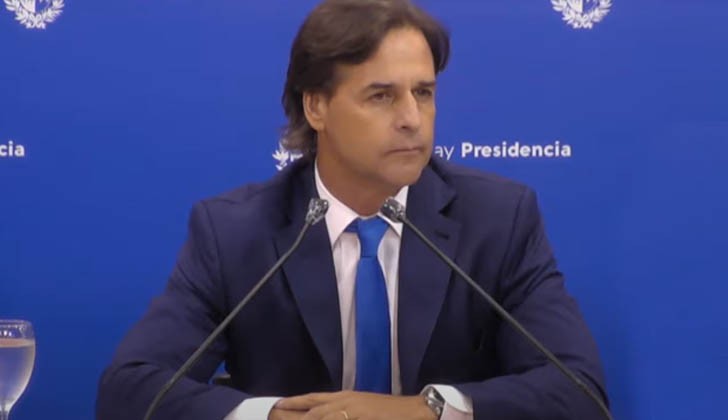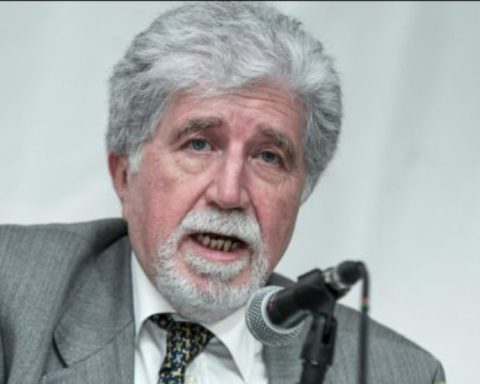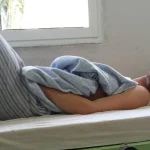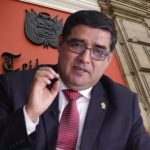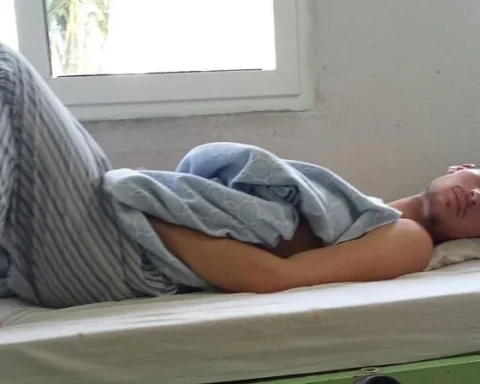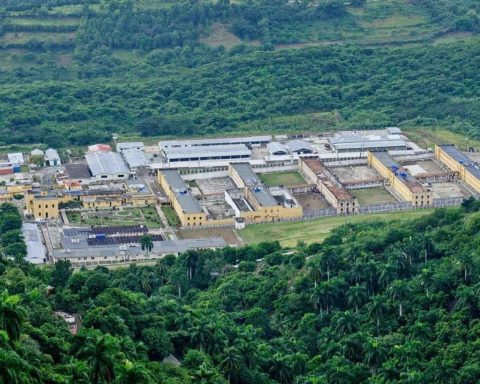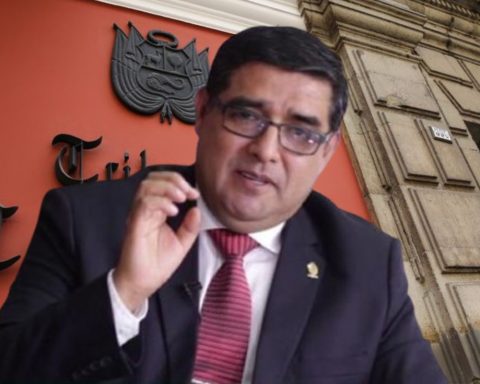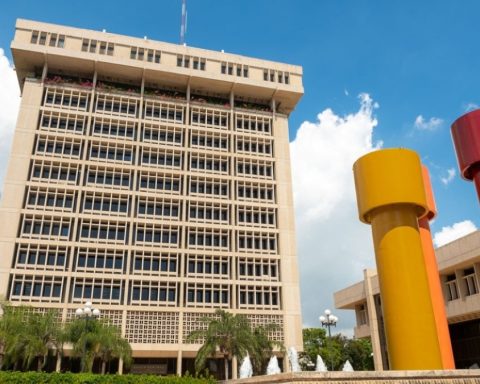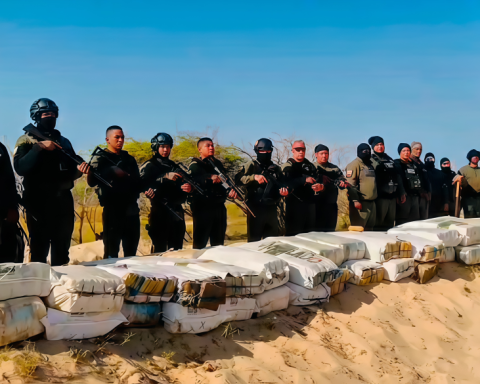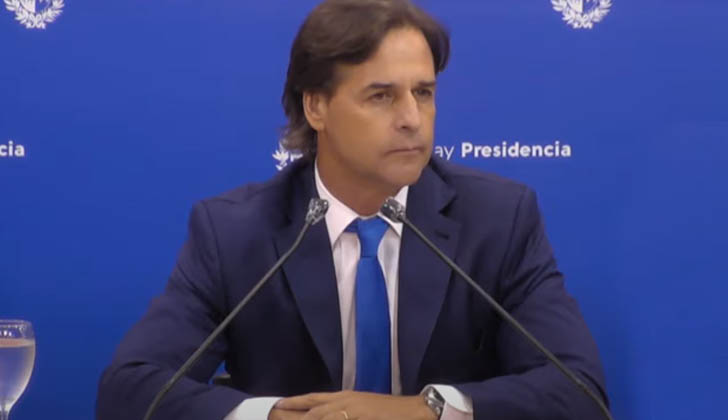
This Wednesday, March 23, Lacalle Pou held his press conference to refer to the 135 articles of the LUC, which will be submitted for consideration by citizens next Sunday, March 27.
The press conference was in the Executive Tower and after his presentation a space for questions was opened.
The president recalled that on March 2, 2020, at the first government meeting, he summoned all the police hierarchies in the country to give him “hierarchical and moral support”, but legal support was lacking, for this reason one of the most important chapters of the LUC is the one referring to public security, where “legal support is established for the police who risk their lives every day to take care of us.”
He said that there is also a “greater protection for citizens, at the same time as harsher penalties.”
The repeal would mean a “setback and particularly on the issue of security.”
“Put yourself in the shoes of that police man or woman from whom the citizenry takes that shield to better fight crime,” he said.
On education, he assured that “the deterioration in the educational level of children, adolescents and young people is notorious.” He said that the tools of previous governments “gave negative results compared to Latin America.”
For this reason, his government opted for “other tools that are better to reach the student.” He added that in educational records “the worst levels are found among those who have the least, in the most vulnerable.”
Regarding labor matters, the president assured that the government “protects both the right to strike and the right to work.”
“The LUC defends the right to strike and at the same time the worker who wants to work. It protects those who want to demonstrate, but also the free movement of all citizens throughout the territory”, he remarked.
Regarding the fiscal rule, he assured that “it is common sense”, because “any family does it when they have an extra weight; that is, they save for unforeseen events, and if at any time they have to spend more, they have savings”.
“This makes respect for public money, something that had not been happening. There is an argument that this fiscal rule would ‘lack social sensitivity’. Clearly that is not the case, because we received the government with a significant deficit, the country indebted, with unemployment and inflation, we had to face a pandemic and today the government, through the entire Uruguayan society, has invested, spent, 1,700 million dollars in health and in the weakest”, he pointed out.
Regarding financial freedom, he stated that many people discuss it without knowing life in the interior of the country. He assured that ATMs and banks are less frequent inside. “Notwithstanding this, there has been no migration towards cash, only greater freedom has been generated so that Uruguayans can manage their money as they see fit.”
In reference to the Rental Law, he said that it is inspired by many people who do not have the possibility of obtaining guarantees, who do not have family or bank support. “This other system allows rent without term. It’s another opportunity for someone who gets a job in another part of the country and has to rent and doesn’t know for how long, or for a kid who comes to study in Montevideo”.
“The Rental Law (14,219) is maintained, on which most leases are based, because it is hyper-guaranteed, but if someone needs this other system, they also have it, because it is a system based on trust. The contracts in this modality range from 8 to 10 thousand pesos”, indicated the president.
As for adoptions. He said: “We don’t understand how sensitivity is not understood. Many know of couples who have been waiting years to adopt, and children who have long been unable to live in a family. With the LUC, a system was created to accelerate adoptions. There was a positive result, because last year there were 125 adopted children, and even without finishing the first quarter of the year, there are already 43 adoptions compared to 32 in the same period last year”.
He said that a claim that he has heard and that he does not share, because the facts prove it, refers to the discussion times of the LUC. “The first time I spoke about LUC was in 2017, the draft was distributed in January 2020, and as a result of the pandemic we distributed the project among all the political parties, and when it entered Parliament it was approved in less time than the Constitution provides. No one can say it was in a hurry. Later they say that it was not discussed. Parliament received more than 170 delegations in one chamber and 100 in the other. To say that strikeouts were legislated is not true, because more than 270 of the original articles were modified”.
Lacalle affirmed that the most convincing proof that it is a good Law is time, because reality is what rules. “Today it has been a year, eight months and 14 days since the LUC has been in force, which is among us, it is positive law, and it already regulates us, and the damages that were announced have not happened, they have not occurred. Yes, there have been benefits and the public security records say so, in terms of drug trafficking, adoptions and also number portability, which is no longer talked about because there was talk of an alleged irreversible damage to public companies.
He remarked that, on the other hand, “users were given freedom and, furthermore, in competition, which is always good, between public and private companies, for now the one that has benefited has been ANTEL.”
He expressed his wish that the day of the 27th be in peace, with serenity and thinking of the good for all. “This Law was designed for the good of all Uruguayans. On the 28th we will continue doing the same: showing affection, dedication, commitment, listening and improving the quality of life of all Uruguayans”.
we must rule
After the message, he went on to questions from the press. At that time, the head of state assured that the LUC is an important tool, because “a large part of the government program is in it and if the articles are repealed it will mean a setback.”
“Governing with these 135 articles is not the same as governing without them. But after the referendum, work will continue on the health emergency, inflation, and prices, which is a global issue, and the social security reform will be drafted”, with respect to which he expects the support of the entire political spectrum, because it is a reform for the next 40 years, he indicated.
He said he did not know how much was spent on the No campaign, nor who financed it, and assured that the Command has nothing to hide in this regard.
On the proposal of the president of the Broad Front, Fernando Pereira, to create a dialogue table and not legislate with only one of the halves, he replied: “What are they referring to? Are we going to sit down with the PIT-CNT or the FA to defend the right to strike and work? Or to give the police tools? If that were the case, we would not be in this referendum.”
“We must govern, we have spoken with everyone and we will continue to talk, because it is the essence of democracy. But that is not that we agree with everything, because the majority ends up deciding the laws. I am not always going to achieve unanimity, I have to try to achieve majorities.
He considered that an eventual triumph of the No would mean the ratification of a legal instrument.
